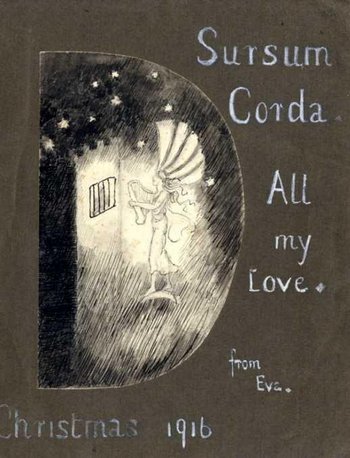How have women’s voices contributed to the dissemination of Classics in Ireland and abroad?
A diverse but consistent pattern exists of female and increasingly feminist voices engaging with classical material in Ireland to make political and philosophical statements. Classical sources empower women with authoritative capital within traditionally male spheres of intellectual activity and outside nuclear family dynamics.
Women’s engagements with classical material can be traced back to 17th century Ireland from references in the poetry of Caitlín Dubh (fl. 1624-9) to the 1663 Dublin premiere of Katherine Philips’ Pompey. Eighteenth century figures of note include the ‘Sappho of Munster’ Máire ní Chrualaoich and Constance Grierson, editor of classical texts at the Grierson Press, while nineteenth century authors like Mary Tighe and Lady Morgan demonstrate an increasing interest in gender equality in their recourse to classical material. These seeds of feminism develop more radically in the classical engagements of twentieth and twenty-first century figures such as Eva Gore Booth, Iris Murdoch, Eavan Boland, Brendan Kennelly, and Marina Carr.
Selected examples
- The Dublin premiere of Katherine Philips’ Pompey (1663) took place the year after this royalist poet had moved to Dublin to pursue her husband’s claim to Irish estates. Philips’ Pompey raises complex political questions regarding contemporary rivalries and land claims, where Pompey could be read both as an exiled and beheaded ruler and as the defender of the Republican Senate, simultaneously evoking the figures of Charles I, Charles II, and Cromwell.
- Mary Tighe’s Psyche (1805) infuses her tale based on Apuleius’ novel The Golden Ass with a subtle gender equality between the male Cupid and the female Psyche, while Lady Morgan’s Woman, or Ida of Athens (1809) and Woman and her Master (1840) display interests in the status of women in classical Greece, linking concepts of Greece and femininity to the emancipation of women and subjugated nations.
- Eavan Boland brings a distinctive female voice to Irish appropriations of Virgil and especially Ovid whose work she evokes throughout her career, along with other classical authors, in order to contemplate the fate of women in literature, both as authors and as subjects, within a male-dominated poetic tradition.
